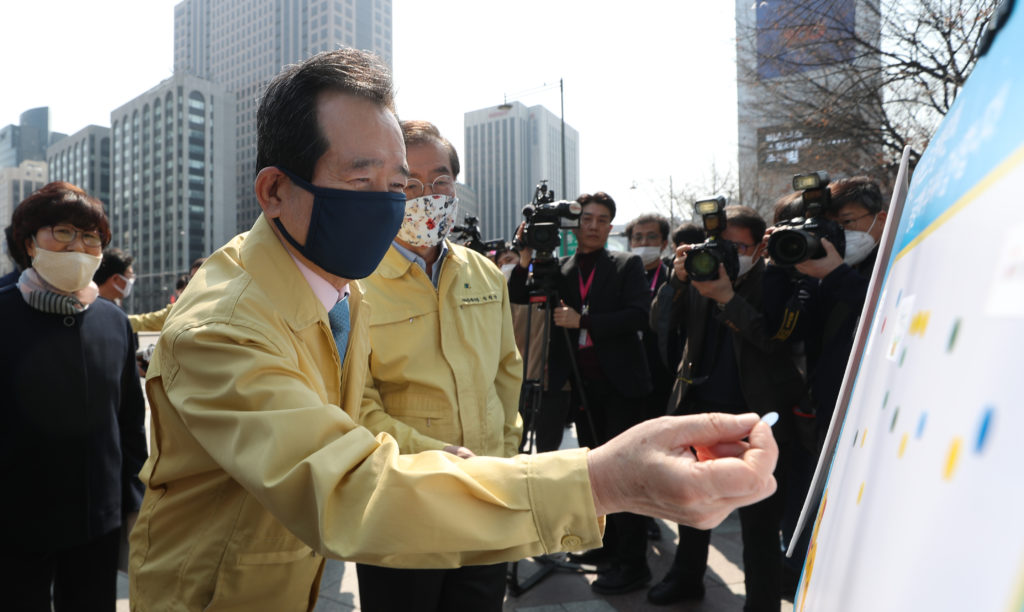The Peninsula
Mask Remittances and Korea’s Sense of Community
Published July 8, 2020
Category: Korea Abroad, South Korea

This briefing comes from Korea View, a weekly newsletter published by the Korea Economic Institute. Korea View aims to cover developments that reveal trends on the Korean Peninsula but receive little attention in the United States. If you would like to sign up, please find the online form here.
What Happened
- As domestic supplies of face masks stabilized, the government will allow the public to send more masks to families living abroad, especially in countries where mask supplies are scarce.
- Starting June 25, South Koreans have been permitted to send up to 12 face masks per person every month to relatives overseas regardless of their citizenship status.
- Under this new policy, family members who are non-South Korean citizens can now receive masks manufactured in South Korea. This includes Koreans adopted overseas as well as parents and children of those who immigrated to Korea via marriage.
Implications: The revisions to rules on who is eligible to receive face masks from South Korean nationals may reflect society’s views on who is considered part of the pan-Korean community. Most notably, the new rules no longer require recipients to be South Korean citizens. While not a conclusive signal of how the country as a whole treats nationality, it may hint at a more inclusive interpretation of what it means to be Korean.
Context: A In early March, the South Korean government banned the export of face masks as a necessary measure to ease domestic supply shortages. An exception to this restriction was made for South Korean citizens who lived overseas. According to Korea Customs Service, South Korean nationals sent more than 5.02 million masks to family members abroad between March 24 and June 19.
Korea View was edited by Yong Kwon with the help of James Constant, Sonia Kim, and Ingyeong Park.
Picture from the user Republic of Korea on Flickr
